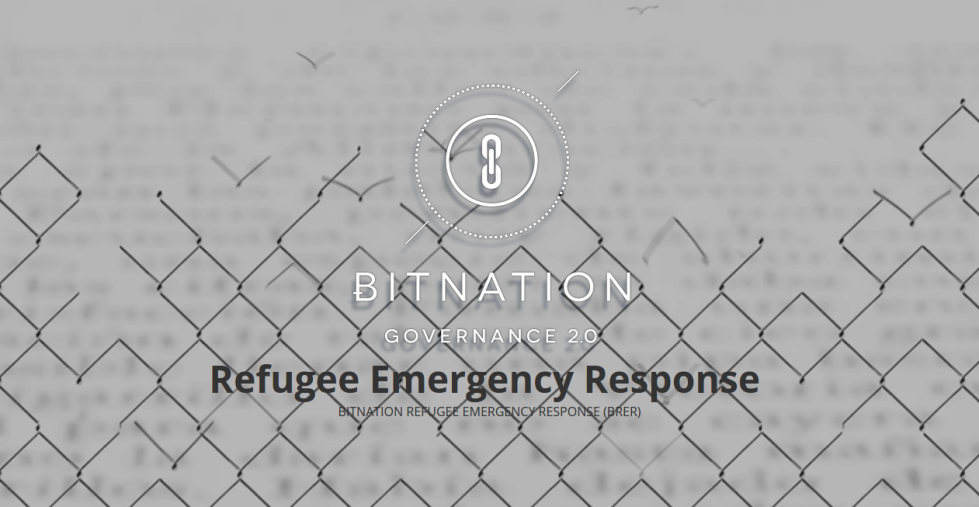The recent refugee crisis has led many to question the European nations and the role they play within the agreed upon “union.” It would seem that when a time of crisis has come upon such nations, the role they have to play is somewhat questionable and nonparallel to their agreed responsibility as a unified network. European Commission President Jean-Claude Juncker made a comment that highlighted this directly, as he was giving his speech to the European parliament that was addressed by BBC. He opened his speech by admitting the European Union was “not in a good situation. There is a lack of Europe in this union, and a lack of union in this union.” Blockchain-based platforms such as BitNation have a different approach in mind, one that would see no reason to stand by and wait for European governments to make a decision.
Also read: Overstock’s TØ Platform is Reinventing Wall Street
To add more fuel to the fire, Hungarian Prime Minister Viktor Orban said on Thursday that his country did not want to take in large numbers of Muslims. It is unclear why the matter is decided based on their religion.
He mentioned to journalist outside the EU headquarters in Brussels “I think we have a right to decide that we do not want a large number of Muslim people in our country”. This somewhat unorthodox comment does not seem to play with the unification of Europe which has a great number of Muslims, a place that was mostly under the Islamic Ottoman Empire for more than 500 years. It is these sort of comments and behaviour that has led some refugees to protest against receiving water or any form of salvation from the Hungarian officials. One refugee commented: “It is better to die in Syria than in Hungary” and another website quoted a refugee expressing his disappointment: “If I had known what I would face in Hungary, I wouldn’t have left Syria”.
It would be fair then to question the entire EU and what it really represents. Another heartfelt article published by Independent UK compares and questions this crisis with our historical refugee events. It goes on to say that “if our generosity stretched that far in welcoming Belgian refugees in the First World War, Jewish refugees before the Second World War, Germans afterwards, Hungarians fleeing the 1956 uprising, even a few Chernobyl survivors (some soon to die)” then why are we not doing the same for the refugees who are coming in from the middle east and Islamic countries? Well, one can make a personal conclusion as to why, though race and religion seem to play a heavy part in this all. Some countries are using the “Terrorist” card to reason their negative view and others are simply bringing it down to their birth religion of Islam, which makes up for 23% of the global population. Condemning such a high proportion of our global population to acts of violence would seem unjust though the Hungarian Prime Minister and those with a similar stance seem to have no hesitation to draw such a conclusion.
The website also has a Bitcoin Aid service that allows anyone to directly fund BitNation with the use of Bitcoins. These donations will be put towards funding the Visa Debit Cards and topping the cards with some initial funds. There are plans to unite with other organizations and introduce a basic income system to the users that can evenly distribute the funds by using a blockchain Identification system – acting as a Digital Identity. In a conversation with Johan Nygren, inventor of Basicincome.co, he mentioned that BitNation will follow the model pioneered by GiveDirectly and hand out donations directly to refugees. :
“Peer-to-peer IDs are the holy grail of decentralization, but we are getting closer. There are technical difficulties with decoupling identity from the nation-state, just like there were technical difficulties to decoupling money, and as Bitcoin succeeded so too will decentralised IDs emerge from new consensus mechanisms. BitNation is leading the development of decentralised IDs, and they are now making their technology public, starting with those who need it the most. These new IDs can be used as proof-of-individuality for people who use basic income services, and they can also be used to show nation-like relationships through connecting with others in a web of trust. People from the refugee network will eventually be able to use their emergency IDs to receive donations directly.”
Furthermore, the Local Support tool can be used by anyone to map out and mark places that the refugees should avoid or can find shelter, food, Bitcoin Embassies, first aid and other useful places throughout the affected regions.
A great place for Bitcoin and its blockchain technology to shine due to its decentralized nature. When the EU as a whole cannot stand united in a time of crisis, we must then look to the people of these nations, people who the governments are designated to represent and honor. We hope to see this website gain popularity and come to provide those in need some hope and support without prejudice.
Please share your thoughts regarding the BitNation Emergency Response in the comments below!
Images courtesy of Bitnation and forbritain.org
The opinions expressed in this article are not necessarily those of Bitcoinist.net.
